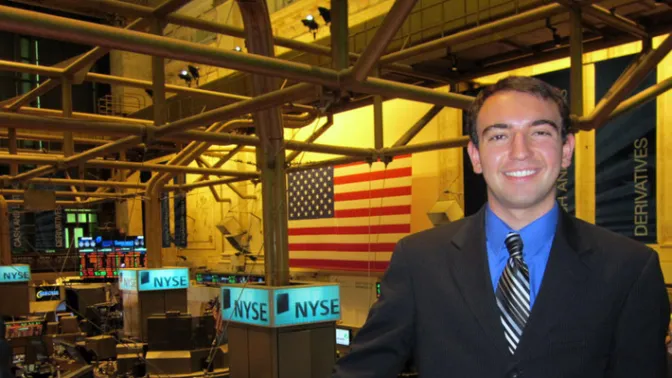From Warzone to Wall Street
“I was deployed right as we were starting M&A,” says Phelan, who completed his EMBA in 2010. “I was extremely eager to keep up with the class and stay in touch with the instructor and learn the material. The class kept me grounded. It masked my ‘woe is me’ thoughts.”
Phelan served five tours overseas in combat zones, in both Iraq and Afghanistan. But this was his first combat tour since being wounded. “None of my classmates knew; it was nothing I was freely sharing, but it was a big deal to me to go back and to do it again.”
Phelan had been wounded on a flying mission in Iraq in 2006 when the plane he was flying took enemy fire. On that mission, Phelan, an Air Force Academy graduate and the flight’s navigator, helped perform a controlled crash landing at the airport from which his plane had taken off. He walked away from the wreckage but did have physical wounds and later suffered from post-traumatic stress disorder.
“All things being equal, I was happy to serve — it’s an honor to do it,” Phelan says. “But it’s a big sacrifice, not only on the person who’s doing it but for the people they leave behind — family, employers and others.”
It’s also something Phelan knew he wanted to do, even as a child. “I wanted to fly jets in my twenties, and then go work on Wall Street when I was done,” he says. “I always knew that finance was where I wanted to be.”
Having completed the first half of that childhood dream, Phelan settled in the Philadelphia area to be close to his grandfather. “My grandfather’s generation was the Greatest Generation,” he says. “I admired them and wanted to emulate them. They came back and helped build the world we had today. The one common bond was that they had all done service to their country when they were young.”
Looking to pursue his MBA, Phelan turned to his grandfather for advice.
“My grandfather was a Drexel alum. Compared to the other schools I looked at, I liked the way the Drexel program was structured,” he says. Phelan also qualified to participate in Drexel’s Yellow Ribbon program, which offers veterans tuition assistance.
“I was unprepared for a finance career when I arrived at Drexel,” he says. “My Drexel education was the advantage I needed to speak the language of business and compete at the highest levels of my chosen industry.”
Soon after earning his MBA, “I was standing in church talking to this guy who was an equity trader at Drexel Hamilton,” Phelan recalls. “He said to me, ‘This may mean nothing to you, but do you know any disabled veterans that might want to go into finance?’ It was fortuitous, random, maybe divinely inspired.”

That chance meeting was Phelan’s first encounter with both Drexel Hamilton — an institutional broker/dealer owned and operated entirely by service-disabled veterans for which he now works — and with the Wall Street Warfighter Program, which helps train, license and find investment jobs for combat-wounded veterans.
“It’s all very much they way we operate in the military — you’re always reaching back behind you to pull people forward,” Phelan says. “I feel like I have a responsibility to help the people that come after me, and I know that they’ll feel the same obligation in turn.
“People who endure things together tend to form bonds stronger than those in the regular workplace. There’s definitely a very tight bond between all of the men and women who have come through the Warfighters program,” Phelan adds.
For now, Phelan thinks he’s found his own home in the world of finance, and found his own way of integrating the parts of his life together.
“My job in flying in the Air Force was to take a whole bunch of data that’s coming at you real fast and figure out the best plan of action and implement it. Finance can be similar to going out on a combat mission. You think you’re going to see X and instead you see Y.”
Still, Phelan says, there are welcome differences between his old and new lives.
“There is a lot of risk here in that people are putting up capital risk, but the nice thing at the end of the day — which helps me keep it in perspective — is if we make a bad trade or a bad decision, no one is going to die.”
And while Phelan still serves his country in the Pennsylvania Air National Guard, he is grateful to go home every night to wife, Melissa, and to do his reading at a real desk in a silence that is occasionally shattered not by artillery, but by children Caroline, 8, and Nicholas, 5.


